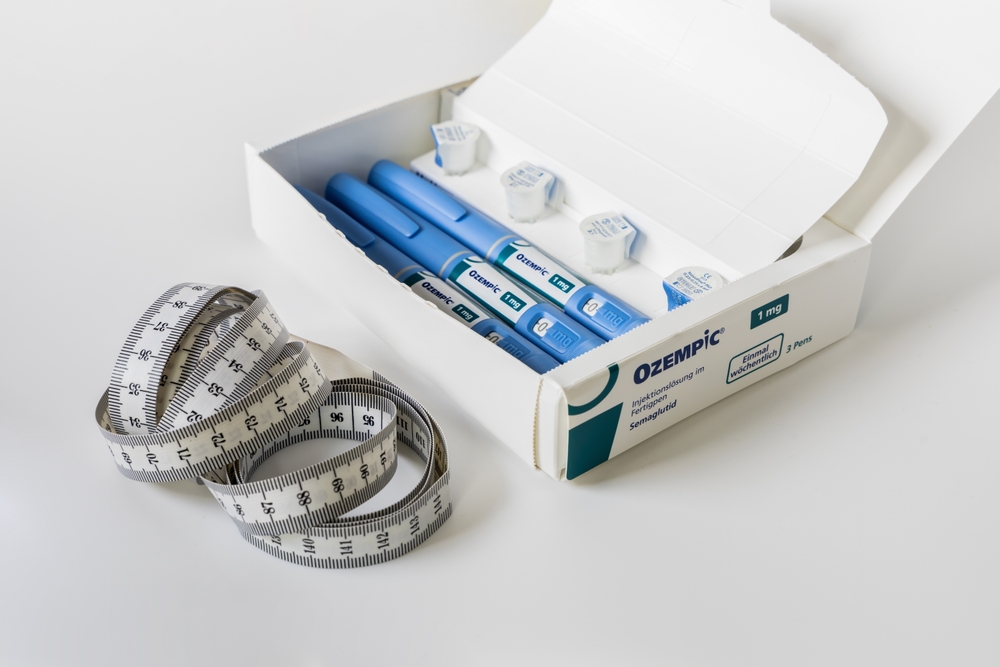In recent years, there has been a drastic increase in the number of people using drugs created for diabetics and obesity known as GLP-1 medications. According to a recent Gallup poll, 15.5 million Americans have used injectable drugs, including Ozempic and Wegovy, to lose weight. While many have reported success, hundreds of others have suffered side effects ranging from nausea and vomiting to more severe issues including bowel obstruction and gastroparesis, more commonly known as stomach paralysis.
There is also a concern that the drugs may lead to fatal consequences. In a recent article for the Daily Mail, journalists studied data from the Food and Drug Administration’s Adverse Event Reporting System (FAERS). They reported that there were links between the medications and 162 deaths in the last six years. A whopping forty percent of those (117 deaths) occurred in the last six months. Although none of the deaths were proven to have been directly caused by the drugs, at the very least, the drugs are suspected to have played a role,” according to the article.
It is important patients know the risks associated with diabetes weight loss medications before they begin to use them. This way they can monitor their health and work with their doctors to prevent any possible long-term damage from potential side effects.
What Are GLP-1 Drugs?
These types of medications contain ingredients like semaglutide and tirzepatide which are GLP-1 receptor agonists and GIP/GLP-1 receptor co-agonists. They stimulate insulin release and reduce blood sugar which slows down the movement of food through the digestive process.
With the slowing-down process, patients can feel full for a longer period. No appetite and eating less food in this instance is seen as a benefit - a benefit that causes weight loss in many situations.
However, since these types of medications were first introduced less than a decade ago, the long-term health effects of their ingredients are still largely unknown.
Doctors must have a thorough knowledge of their patient’s medical history to weigh the benefits of the drugs against potential issues including the possibility of major digestive and stomach issues like gastroparesis and other injuries. Along with that, drug manufacturers and distributors must ensure doctors and patients are given proper warnings about the harm that could occur.
Unfortunately, some of those harmed by diabetes weight loss drugs feel manufacturers may not have put the patients first.
Diabetes Weight Loss Drug Lawsuits Raise Awareness of Risks
In the last 14 months, many patients who have suffered severe side effects from the medications mentioned above have filed diabetes weight loss drugs lawsuits against the drug manufacturers, including more than 600 lawsuits that are part of multidistrict litigation (MDL) in the Eastern District Court of Pennsylvania against Novo Nordisk and Eli Lily. These lawsuits allege the manufacturers failed to warn the patients of the danger associated with their products.
A Victim Goes Public with Painful Story
Juanita Gantt is a Pennsylvania resident who recently filed a lawsuit against Novo Nordisk. Gantt suffered a near-fatal experience after being prescribed two of Novo Nordisk GLP-1 drugs, first Wegovy and then later, Ozempic.
In early September, she shared her struggles and why she was taking action against the drug maker on CBS Mornings stressing that she was unaware of the dangers that led to emergency surgery.
According to the interview, Gantt was considered a good candidate for the GLP-1 drugs, and for several months, she believed she was experiencing positive results, including having less of a struggle with her appetite.
However, in October 2023, she was rushed to a hospital after her husband found her unconscious. During an emergency surgery, doctors found that parts of her large intestine had “died,’’ according to the report. Doctors were forced to remove her colon, replacing it with an ileostomy bag.
After the surgery, her struggle continued. During recovery, Gantt went into cardiac arrest. Despite the major events, she recovered and has filed a lawsuit against Novo Nordisk. She has alleged that the company did not adequately warn her or her doctors about the risks and serious side effects.
In response to Gantt, Novo Nordisk issued a statement saying that the accusations are without merit and that the labeling of their products does warn against the risks.
People who are currently taking diabetes weight loss drugs or those who are considering them need to weigh the benefits of the drugs against the potential risks. Work with your healthcare provider to make a well-informed decision about starting a new drug treatment and understand the potential side effects so you don’t suffer serious health complications.










